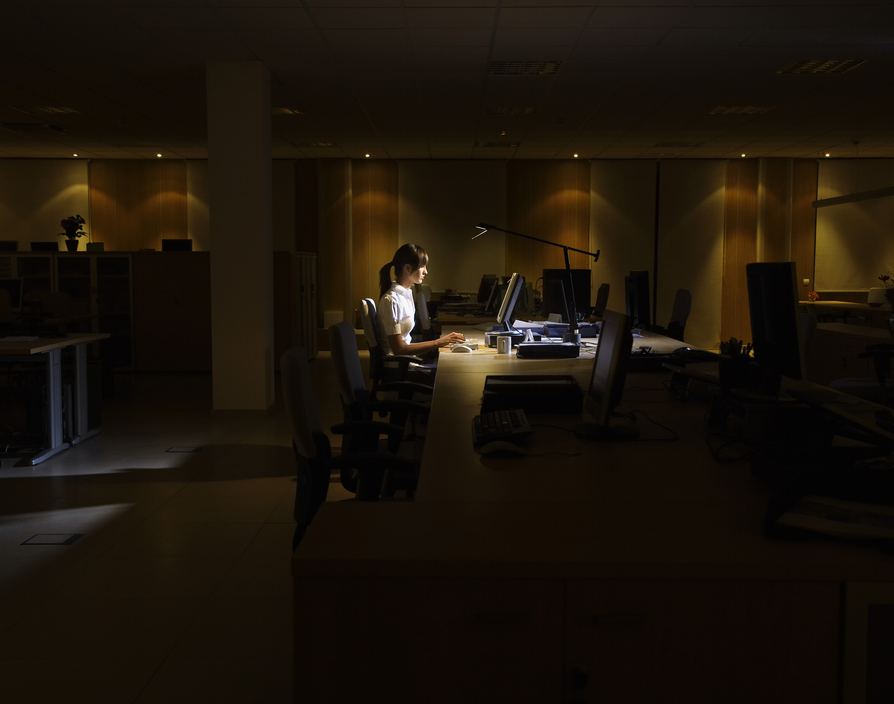Many millennial entrepreneurs are guilty of working long hours during the first years of their startup journey. For instance, when James Lintern, co-founder at RotaCloud, the staff management company, started his business, it was considered normal for him and his co-founders to be working late or even have “no set start and end times.” However, he ensured this didn’t become a norm going forward. “This wasn’t the best example to set for our new employees, so [we] had to make a conscious effort to leave the office on time and to not give them the impression that they should be remaining at their desks because they felt they had to,” he said.
While entrepreneurs like Lintern realise the detrimental effects of having employees work overtime, it seems like most don’t. Indeed, according to the Trades Union Congress, UK companies claimed £32.7bn of free labour in 2018 because of workers doing unpaid overtime. The report also shone light on how overworking saw teachers and educational professionals working the most unpaid hours with an average of 12.1 extra hours each week. Chief executives are close behind followed by legal professionals.
However, many agree that working overtime is dangerous for a business. “Working more hours doesn’t help people be productive but simply adds to their stress levels and makes it harder for them to know what is and isn’t a priority,” said Bradlee Allen, product evangelist at Fuze, the communication platform, speaking with Elite Business. “As such, businesses shouldn’t be encouraging people to work more hours but offering them the flexibility to work when they will be most effective, at the times that suit their individual needs.”
Indeed, spending more time at work not only reduces productivity but also causes mental health issues among employees. This is what made Adam Thornhill, head of marketing at Medicspot, the private healthcare service, realise that action had to be taken to stop workers from clocking out late. And they now completely restrict access to the office outside of working hours – without exception. “This culture of working late in the office took a significant toll on the work-life balance of our employees and employee burnout not only affects the personal health and relationships but also impacts their efficiency and performance,” he said. “A company can only be as good as its employees.”
Indeed, the always on culture needs to be discouraged in employees as well as employers. A concerning number of business owners have their work-life balance out of kilter – a habit which has been seen in many head honchos. For instance, Tesla founder Elon Musk, admitted to having 100-hour weeks and this practice entails a risk of burnout. Additionally, it also puts pressure on the employees to stay late. And Musk isn’t the only one. Companies like Uber too have been critiqued for their practice of making employees overwork. “Uber is a data-driven company and the data shows unequivocally that when you work longer, you are not working smarter,” Uber board member Arianna Huffington told the company’s employees, according to a leaked audio obtained by Yahoo Finance.
And there are reasons why this epidemic is plaguing so many businesses. “Either you haven’t staffed the job correctly or planned it with enough time in the diary,” said Rachel Smith, creative partner at & SMITH, the brand design company for hospitality businesses. To combat this problem, Smith introduced flexitime wherein employees can work an 8.5 hour day anytime between 8am and 7.30pm, with an hour for lunch. “This means that it’s perfectly acceptable for someone to leave at 4.30pm without any of the first to leave old school guilt,” she said. While there will be some deadlines that require a late night but it shouldn’t be a constant and consistent ritual. “Many people are happy to put in extra hours as they are passionate about their work but as an employer you shouldn’t abuse this,” she added.
While it’s normal for startup owners to work extra hours, justifying workaholism and unpaid hours put in by your employees can turn into a major problem. In fact, asking your staff to do so can result in them working mechanically and harbouring hostile emotions towards the company. “Whilst you might think that you are getting extra value through making employees work unpaid overtime, it will inevitably result in your employees burning out and beginning to resent you,” said Craig Pannozzo, general manager of Gazeboshop, the gazebo selling company.
In fact, taking your staff for a cheeky pint on Fridays to the pub might be what they need to be more productive. And Lintern saw the results of doing so first-hand. “It’s definitely had the desired effect,” he added. “If you want your staff to be happy, productive and a part of your business for years to come, they need to be firing on all cylinders — and that starts with going home when they should.”
Forcing your employees work overtime – especially unpaid hours is a slippery slope and having a work-life balance is crucial if you desire to scale in the long run. “[Provide] the tools and technologies that allow workers to work smart, rather than just working hard,” said Allen. ![]()
Share via:








































